Climate Change Fiction
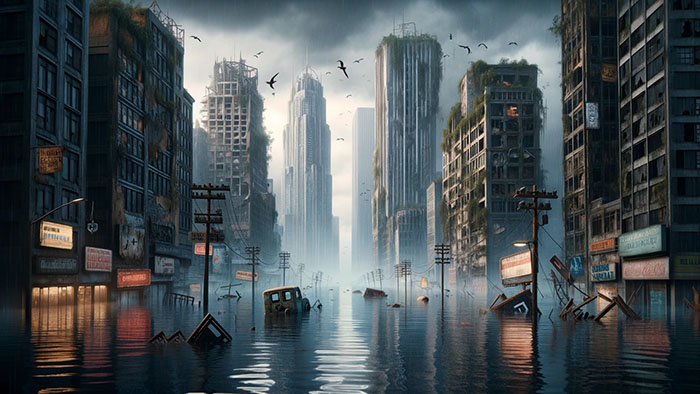
While the phrase “Climate Fiction,” or “Cli-Fi,” has been applied retroactively to such older works as Octavia E. Butler’s Parable of the Sower (1993) and J.G. Ballard’s The Crystal World (1966), it has really evolved into its own genre in just the past 15 or so years as public awareness of climate change has grown. Mostly set in the future and focused on dystopian societies dealing with the consequences of climate change, Cli-Fi provides some glimpses of what the future might hold if we fail to stabilize our environment. Exploring this genre seems like a worthwhile endeavor as we approach Earth Day 2024, so we have prepared a list of Cli-Fi novels owned by the library that have been published within the past five years. While they paint often bleak pictures of the future, some also find hope in unexpected places. We invite you to explore some of these possible futures as we move forward into uncertainty.
For information on sustainability at SDSU, please visit https://sustainable.sdsu.edu/
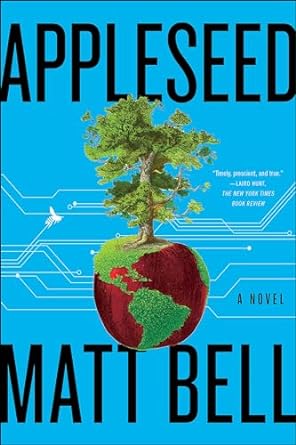
Custom House, 2021
The plot of this New York Times Notable Book spans over a thousand years, from the story of two eighteenth-century brothers planting apple orchards for profit to a thousand years in the future when North America is covered by a sheet of ice. In between is the second half of the twenty-first century, when climate change alters the earth forever. The consequences of the unchecked exploitation of natural resources is explored in a book that NPR.org calls "a meditative thriller with an ethical heart." Esquire calls it a “breathtaking novel of ideas unlike anything you’ve ever read.”
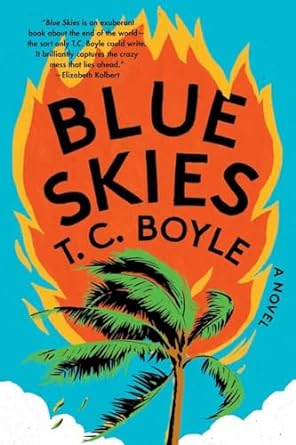
Liveright, 2023
Perennial best-selling author T.C. Boyle has published nineteen novels and over 150 short stories over the past four decades. Ron Charles of the Washington Post calls Boyle “one of the most exciting and intelligent storytellers in the United States.” A climate change novel that critiques the American materialist culture, Blue Skies features a nature-loving family living on a coast trying to adjust to a world in which transformational natural disasters happen every week. Annie Proulx calls this darkly humorous novel “brilliantly imaginative... in a terrifying way.”
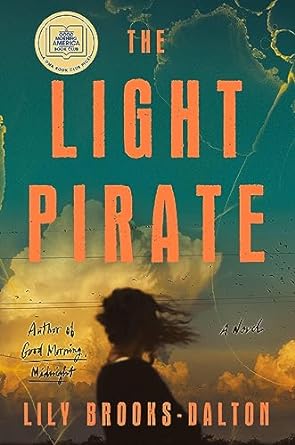
Grand Central, 2022
This well-received novel was both a New York Times Editors’ Choice and an NPR “Book We Love.” Brooks-Dalton is also the author of one other novel as well as a memoir; her work has been translated into eighteen languages. Although The Light Pirate depicts the unraveling of life in Florida amidst an onslaught of hurricanes, it is nonetheless a hopeful book. Charlie Jane Anders of the Washington Post writes that it “feels like a small miracle: a book about a world wrecked by climate change that manages to be full of warmth and compassion.”
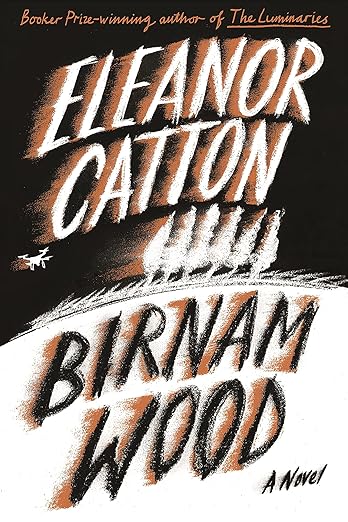
Farrar, Straus and Giroux, 2023
Canadian-born New Zealand novelist Eleanor Catton published her third novel (and her first since winning the Booker Prize for The Luminaries in 2013), Birnam Wood, in 2023. It was named one of the year’s best books by several publications, including The New York Times, The Washington Post, and The New Yorker. It was also selected as a best book by NPR and was a Barack Obama Summer Reading Pick. Birnam Wood tells the story of a guerilla gardening collective’s efforts to farm a property abandoned after a landslide while it is being simultaneously pursued by an American billionaire who wants to build his end-times bunker on it. Stephen King says, “Birnam Wood is terrific. As a multilayered, character-driven thriller, it’s as good as it gets.”
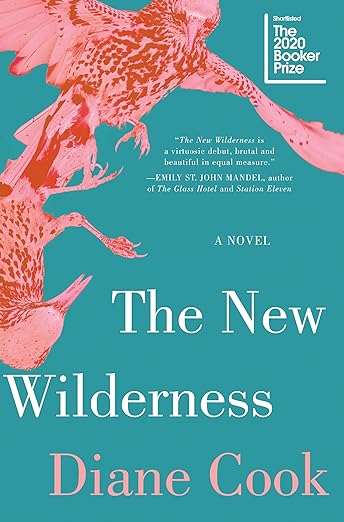
Harper, 2020
Entertainment Weekly asks, “Could this be the great climate change novel of our time? Buzz is building fast for the epic debut novel of Diane Cook.” Shortlisted for the 2020 Booker Prize, The New Wilderness was selected as one of the year’s best books by The Washington Post, NPR, and Buzzfeed. It tells the story of Bea and her five-year-old daughter, Agnes, whose health is being destroyed by the pollution in the grossly overdeveloped city where most people live. They volunteer along with eighteen others to go live in the Wilderness State, the last remaining region of protected, undeveloped land. Their objective is to see if people can live in nature without destroying it.
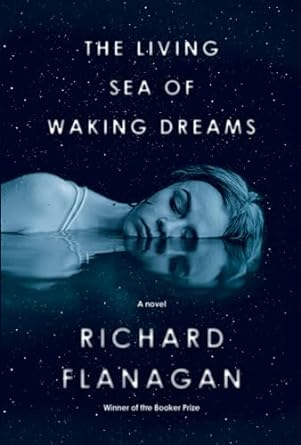
Alfred A. Knopf, 2021
Australian author Richard Flanagan won the 2014 Man Booker Prize for The Narrow Road to the Deep North. His latest, The Living Sea of Waking Dreams, features Anna, whose dying mother is increasingly subjected to extreme medical interventions and who increasingly turns her attention to the visions she sees through her hospital window. Anna herself is increasingly drawn to the window and notices that other people, as well as pieces of herself, are vanishing through it. A cautionary tale of hubris amidst climate change, a starred review in Booklist calls it “a timely, unforgettable work of climate fiction.”

Pantheon, 2022
Julia Glass’ debut novel, Three Junes, won the 2002 National Book Award for fiction; Vigil Harbor is her seventh novel, and it is focused on an insular coastal town grappling with a number of changes affecting it, from climate change to domestic upheavals and terrorism. Set a decade into the future, the unexpected arrival of two strangers further upsets the town’s equilibrium with dramatic repercussions. Author Gary Shteyngart writes, “Julia Glass gives us exactly what we need during these trans-apocalyptic times, a novel of heart and humanity set against the growing insanity.”
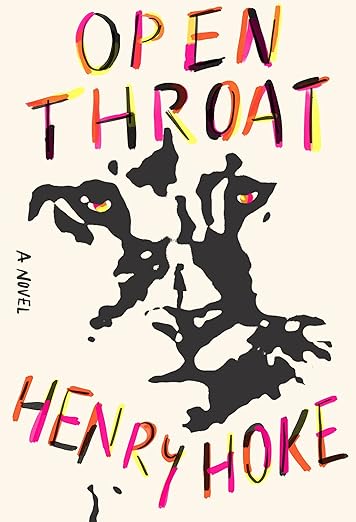
MCD / Farrar, Straus and Giroux, 2023
A wonderfully surreal novel narrated by a queer and dangerously hungry mountain lion. Living underneath the Hollywood sign on land parched by drought, the lion protects a nearby homeless encampment until it is destroyed by a man-made fire that forces them into the city. There, they are witnesses to the unfair inequalities of life in Los Angeles. A novel unlike any other, The New York Times Book Review says “Open Throat is what fiction should be.”
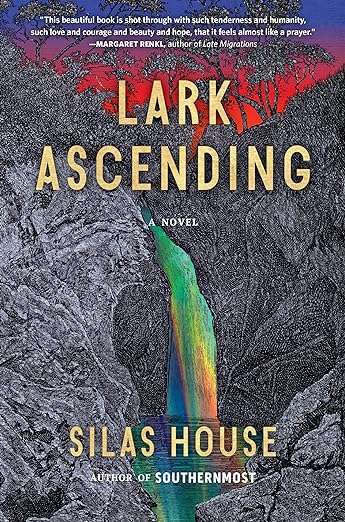
Algonquin Books of Chapel Hill, 2022
Kentucky Poet Laureate Silas House won the Southern Book Award for Lark Ascending, a novel set in the near future that centers on Lark, a young gay man who travels with his family from Maryland to Maine before continuing on to Ireland as the United States becomes increasingly controlled by religious nationalist extremists. It is a gripping novel of people trying to escape both persistent natural disasters and political persecution. A starred review in Booklist calls it “an emotional testament to the power of hope,” while Kirkus Reviews says it is “a clear-eyed and engaging apocalyptic yarn.”
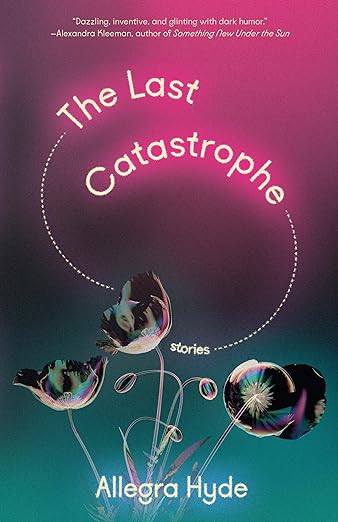
Vintage, 2023
A short story collection deemed “urgent and timely” by Electric Lit, The Last Catastrophe contains stories featuring a vast caravan of roaming RVs, a girl who grows a unicorn horn, and a young lady in space who bonds with her AI warden. All are the result of the “global weirding” events brought about by climate change disruptions. The Chicago Review of Books writes, “While The Last Catastrophe is a brilliant collection from many angles, Hyde particularly excels in one notoriously difficult way: making the amorphous and incomprehensible aspects of climate change and its effects feel tangibly real.”
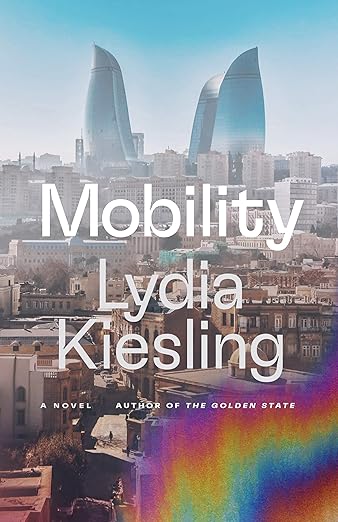
Crooked Media, 2023
Mobility was included on several 2023 “Best Books” lists, including those of Time, Vulture, Slate, and Lit Hub. It follows the life of Bunny Glenn; at the start of the novel it’s the 1990s, and she is living in Azerbaijan with her Foreign Service family. The plot follows her through middle age as we are walked through the decisions that inspired to her to pursue a career in the oil industry as well as the consequences of that decision. It is a novel of class, politics, power, and climate. Apoorva Tadepalli of The Washington Post writes, “Kiesling leaves readers with a troubling awareness of the role we play in our ecological future, and a bleak sense that the new normal is like the old one: simultaneously overwhelming and underwhelming.”
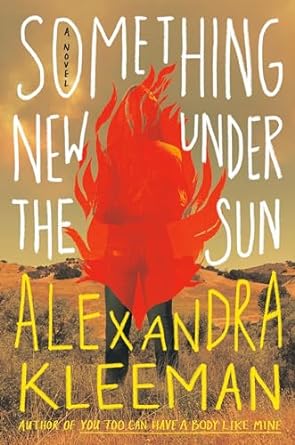
Hogarth, 2021
A novelist who comes to California to oversee the film adaptation of his book finds that it is not as he had imagined it would be, as he is constantly confronted with drought, wildfires, and corporate corruption. A company marketing a mysterious brand of synthetic water may be behind much of it. This thrilling novel was named to the annual “Best Books” lists of The New York Times Book Review, Time, Los Angeles Times, The Philadelphia Inquirer, Vulture, Thrillist, and Literary Hub. The New York Times writes, “It is a ghost story not of the past but of the near future, a ghost story as alarm bell, one hard to leave in the realm of fiction.”
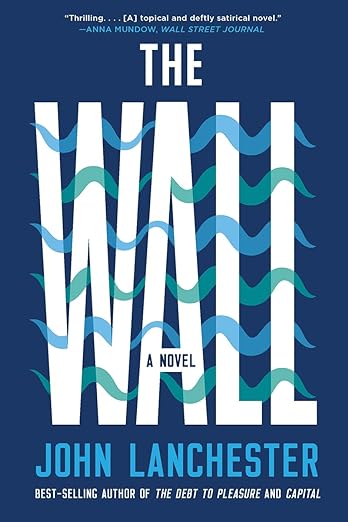
W.W. Norton & Company, 2019
The Wall is a distressing dystopian novel about an island nation in the grips of “the Change.” The Defenders have erected an enormous barrier around their coastline in an attempt to keep out the Others, the desperate people trapped outside as the waters rise. It focuses on a character named Joseph Kavanagh, whose job it is to protect at all costs his section of the Wall. Stephen Dyson of the Washington Post writes, "It’s not clear what it will take to finally convince us that it’s time to panic about climate change, but works of fiction such as The Wall have an important role to play."
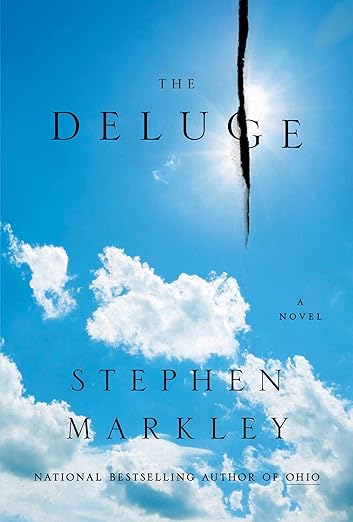
Simon & Schuster, 2022
Named a New York Times Notable Book, this dystopian epic made quite a splash upon publication. Stephen King says, “This book is, simply put, a modern classic. If you read it, you'll never forget it. Prophetic, terrifying, uplifting.” The Deluge is a story of our times and our uncertain future. Set against a backdrop of government gridlock and a looming ecological crisis, the novel presents a stunningly eclectic cast of characters whose activities, ranging from Los Angeles to Washington, DC and several points in between, may determine the fate of the planet. A starred review in Library Journal says, "This is a stunning achievement that may earn a place among dystopian and apocalyptic classics like 1984 and On the Beach. And perhaps most of all, it’s an unflinching and utterly compelling call to action to prevent an all-too-possible future."
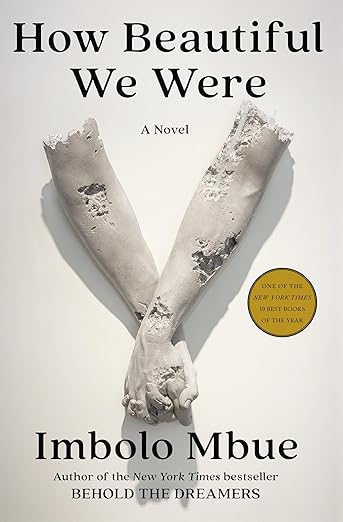
Random House, 2021
Named one of the year’s best books by multiple publications including The New York Times and The Washington Post, How Beautiful We Were tells the moving story of a young African girl who leads an uprising against the American oil company that forces her people to live in fear amidst environmental degradation. Their own government, led by a brazen and self-serving dictator, provides no help and forces the people to act on their own. O: The Oprah Magazine writes, “A David and Goliath story for our times, a riveting tale of how people coming together to make change can topple even the fiercest, best-financed foe.”
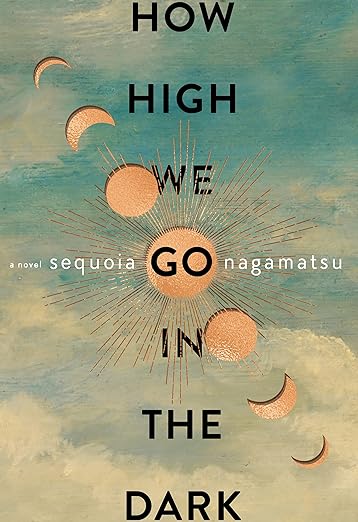
William Morrow, 2022
How High We Go in the Dark is the first novel by Sequoia Nagamatsu, following his short story collection Where We Go When All We Were Is Gone by six years. It is the tale of an Arctic Plague unleashed on the planet as researchers study the melting permafrost. Watchmen author Alan Moore writes, "Haunting and luminous, How High We Go in the Dark orchestrates its multitude of memorable voices into beautiful and lucid science fiction. An astonishing debut." Spanning continents and centuries, How High We Go in the Dark is not a book you’ll soon forget.
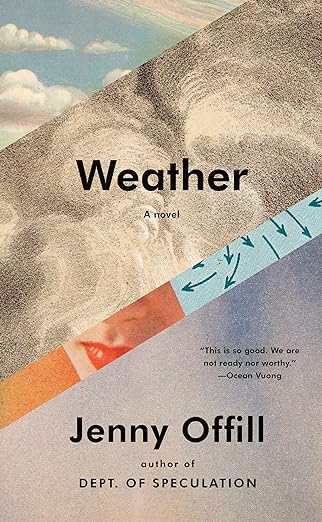
Alfred A. Knopf, 2020
Jenny Offill followed her 2014 best-selling novel Dept. of Speculation, which made The New York Times Book Review list of the year’s ten best, with Weather, which NPR calls “darkly funny and urgent.” It is the story of a nontraditional librarian dealing with troubled family members while agreeing to answer the polarizing questions received by her friend’s podcast, Hell and High Water. The Los Angeles Times calls this book “the right novel for the end of the world.”
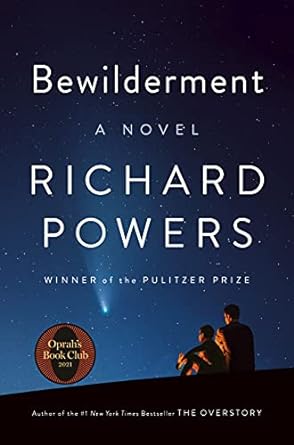
W. W. Norton & Company, 2021
Bewilderment was shortlisted for the 2021 Booker Prize and was named a New York Times Notable Book. This father-son novel features Theo Byrne, an astrobiologist who is raising his unusual son alone following the death of his wife. As Bryne seeks experimental treatments for his son to keep him off psychoactive drugs, he struggles with uncomfortable truths about the future of the planet. Oprah Winfrey says, "Richard Powers is one of our country’s greatest living writers. He composes some of the most beautiful sentences I’ve ever read. I’m in awe of his talent." Newsweek calls this book "nothing short of transportive."
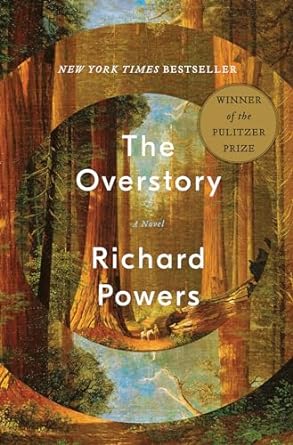
W.W. Norton & Company, 2018
Another bestseller by Richard Powers, The Overstory won the 2019 Pulitzer Prize for Fiction. A captivating novel of activism and resistance, The Overstory features a cast of characters in interlocking fables who are bound together by trees; one of them is a speech- and hearing-impaired scientist who discovers that trees communicate with each other. It is a stunning exploration of the natural world. Ann Patchett calls it "the best novel ever written about trees, and really just one of the best novels, period."
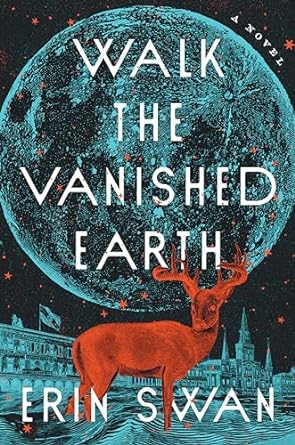
Viking, 2022
Erin Swan’s debut novel is a seven generation family epic that spans 200 years and imagines the impact of global climate change as the environment on earth unravels. It begins on the Kansas plains and ends on Mars, after the earth has been completely covered with water. What will the future beyond that hold? Will there even be one? The Chicago Review of Books says, "The shifting planets and timelines bring to mind the novels of Ursula K. Le Guin, N.K. Jemisin and David Mitchell... Swan has fashioned a deeply original story that reflects on America’s founding myths, the climate damage wrought by all of us, and the many unknowns of the century ahead.”
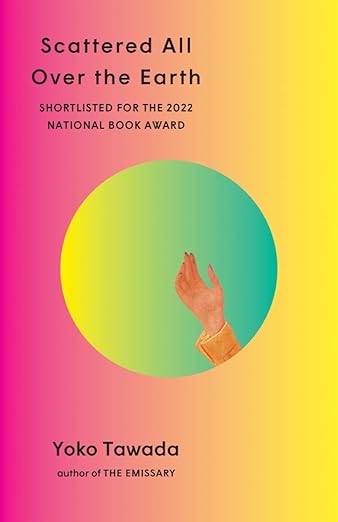
New Directions, 2022
Yōko Tawada is a Japanese author currently living in Germany. Her novel The Emissary was awarded the 2018 National Book Award for Translated Literature. Scattered all over the Earth, which presents a futuristic climate change dystopia, was published four years later and was a finalist for the same award. The novel features Hiruko, who is a former citizen of Japan, which has vanished under the sea; she is a climate refugee teaching immigrant children in Denmark with her invented language, Panska. In search of people who speak her mother tongue, Hiruko makes new friends and takes off on a journey. Kamil Ahsan of NPR comments, "This dystopian novel is riveting, bizarre as can be, and like nothing else I've ever read. I'm terrified not enough people will read it."
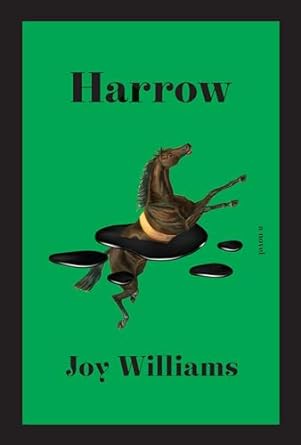
Alfred A. Knopf, 2021
Joy Williams returned with her first novel in over twenty years when Harrow was published in 2021. After a teenager named Khristen’s mother disappears and her failing boarding school closes, she takes off across the barren landscape of a decaying world. She ends up in what remains of a resort next to what has become a putrid lake where she meets elderly residents plotting against the corporations and greed that have caused the destruction of the natural world. In a starred Booklist review, Donna Seaman writes, “Balancing creeping despair with mordant humor and piquant strangeness... Williams asks if hope and compassion, reason and responsibility can survive once the wonders of wild and flourishing nature have been utterly destroyed. Brilliantly and exquisitely shrewd and unnerving.”
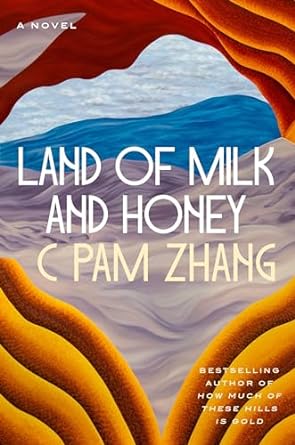
Riverhead, 2023
Crops are disappearing as a smog covers the earth. A chef leaves her city behind and takes a job in a mountaintop enclave for the super-wealthy who seem to be shielded from the degradation that grips the rest of society. As she considers ways to reshape the world, she is confronted with the ethical dilemma inherent in looking for pleasure on a world that is dying. Bon Appetite writes, "Land of Milk and Honey is a lush, sensual story that revels in food and pleasure—and, at the same time, casts light on who gets and doesn’t get the privilege of indulging in such experiences."
